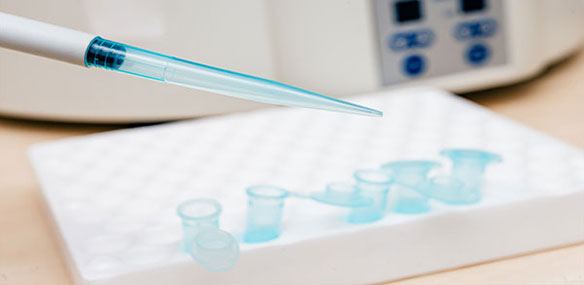In vitro fertilization, or IVF, is a specialized procedure to help you get pregnant when other fertility treatments are unsuccessful or unavailable. You may want to consider IVF if you're dealing with:
- Failed standard infertility treatment.
- Prolonged infertility (more than three years).
- Severely damaged or absent fallopian tubes.
- Male factor infertility (low sperm count or low motility).
- Endometriosis (severe or failed prior treatment).
- Unexplained infertility.
- Cervical factor infertility.
IVF involves collecting eggs from the ovaries, fertilizing eggs in the laboratory with partner or donor sperm and then placing developing embryos into the uterus.
Step 1: Induction of Multiple Ovulations (Eggs)
To increase IVF effectiveness, you’ll receive medications to stimulate production of multiple eggs and to inhibit the release of those eggs, a process called ovulation induction. Drugs called GnRH agonists suppress your body’s own hormonal response so that we can directly control the ovarian production of eggs. Other drugs, called human gonadotropins, induce multiple eggs’ development and maturity. Your doctor will administer these drugs (oral or injections) in a set sequence. You may also learn to inject some medications yourself at home. You’ll continue these medications until it is time to induce ovulation.
Step 2: Egg Retrieval
When your doctor verifies two or more mature, preovulatory follicles, you will be scheduled for egg retrieval 32 to 35 hours after you’ve received the hCG injection. Using ultrasound to guide the procedure, your doctor will pass a needle either through the vagina or abdominal wall into the follicles to collect the eggs. This technique takes 20 to 30 minutes under a light anesthesia, with very little discomfort.
Potential risks do exist; the most common risks include bleeding, either at the puncture site or from the ovaries, infection or failure to obtain eggs. If bleeding from the ovaries persists, an extremely rare event, an operative procedure may be necessary.
Step 3: Sperm Preparation
On egg collection day, you’ll also need a semen sample. Abstinence for 48 hours is required prior to collection. In some situations, your doctor may also ask for a sperm sample prior to the IVF cycle to freeze as a backup in case there’s some problem on egg collection day. Lab technicians will process the sperm sample using specialized techniques to collect the most motile (active) sperm.
Step 4: Egg Fertilization
Retrieved eggs undergo examination by a gamete biologist for maturity and viability. We then place the eggs into a special incubation fluid to complete the final steps of development necessary for fertilization. At a specific time, the specially processed sperm are added to the eggs.
Step 5: Embryonic Growth in the Lab
Approximately 24 hours after retrieval, a gamete biologist performs a fertilization check on the egg(s). If one or more are fertilized, the pre-embryo(s), also called zygotes, are checked at different times to determine adequate growth and development. Typically, embryo(s) grow in the lab for three to five days after egg collection. All aspects of the embryo growth are carefully monitored and controlled.
Step 6: Transfer of Embryos into the Uterus
Once normal growth and development occurs, embryo(s) go back into the uterus, typically three or five days after the egg retrieval. Using abdominal ultrasound to monitor the process, your doctor transfers the embryos through a very fine catheter passed through the cervix and into the uterus. No anesthesia is required. Afterwards, you may resume routine activities, but we recommend no strenuous or impact activity for 14 days.












